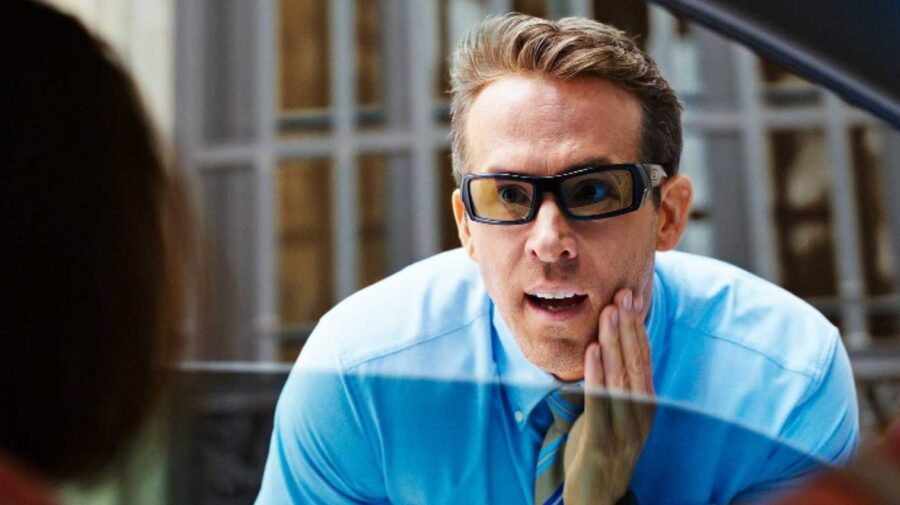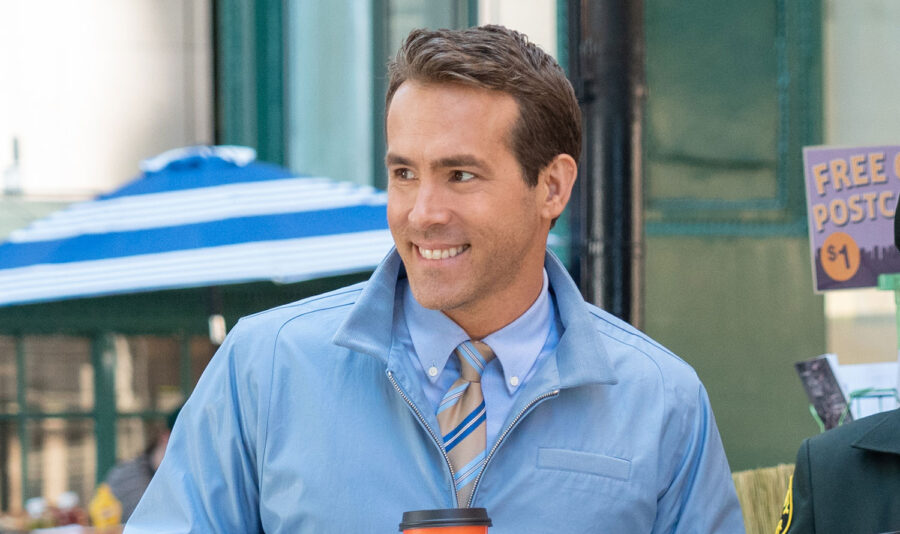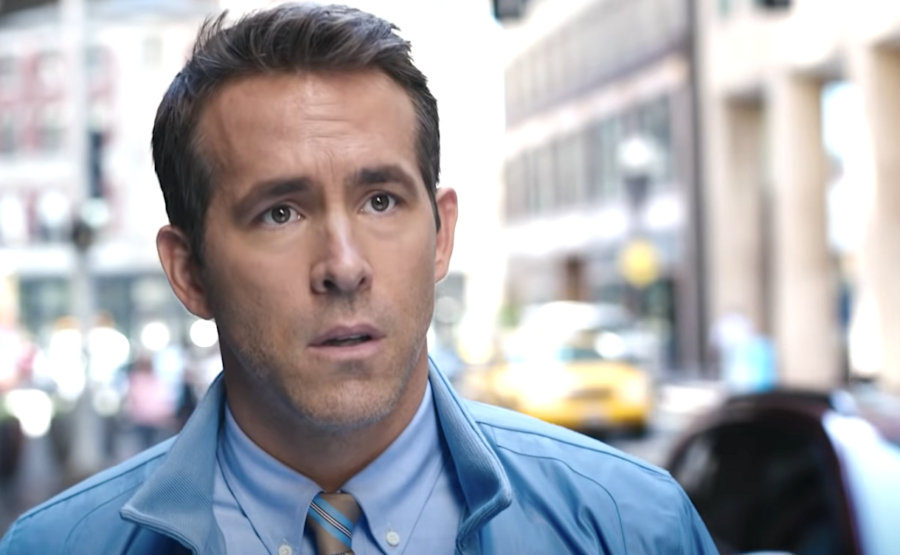Ryan Reynolds Made Two Major Changes To A Blockbuster’s Script
Ryan Reynolds has major sway over all of his movies and in one blockbuster made two crucial changes to the original script. It worked.
This article is more than 2 years old

Ryan Reynolds didn’t receive a screenwriting credit for Free Guy, but new reports indicate he was more involved than he had previously let on. Matt Lieberman, who wrote the first draft in 2016, attributes the Deadpool star with redefining Guy as an easygoing fellow thoroughly satisfied with life as an NPC, and with suggesting the character of Dude as a last-minute villain. The two exchanged notes and updated pages together shortly after Reynolds took interest in the project and convinced Shawn Levy, who had initially passed on the script, to come on board as director.
Lieberman had only praises to sing of Ryan Reynolds, who is reportedly as innovative as a writer as he is as an actor and producer. “I would never in a million years dream that Ryan Reynolds would be Guy. I love Ryan, and once he got on board, the script went from just being in development to 100 miles per hour,” he tells Aaron Couch of The Hollywood Reporter on Wednesday. “He is a great writer. He is a smart producer. He was looking at things as a writer, as an actor, as the guy who has to go out and sell all these lines and these scenes. His biggest note was, in the original script Guy was a cynical character. He started in a cynical place. ‘Why do we put up with this?’ And he was like, ‘Guy should be happy where he is.’ It really gave the character a much bigger arc. A further place to go. He had a lot of great ideas.”
Ryan Reynolds suggested adding a “2.0 version” of Guy toward the film’s climax, as a fitting antithesis to everything Guy stands for as an NPC. Guy is the kind of video game stand-in who is categorically average by design; he’s not meant to stick out or seem threatening to real-world players. He’s just the background. Think passing civilians in Grand Theft Auto, but not the ones with concealed weapons on their person. Guy is that occasional NPC who would flee in panic when confronted, only to trip and fall flat on their nose on the way out, or the type to react with aberrant glee or indifference in the face of a player character shooting down the street or otherwise causing havoc. Dude serves as Guy’s reverse parallel, challenging Guy’s characteristic mediocrity with exactly the forbidding personality to engage any character, NPC or player, upon contact. In open-world games like Grand Theft Auto, that would make Dude the sort of NPC to harass another NPC by accident, if they happen to be in the way.

Lieberman was on set for the big showdown between Guy and Dude, and it is every bit a screenwriter’s dream. “[It] was amazing to watch,” he recalls. “It was so cool to see that stuff happening and to see Ryan Reynolds reading your lines and doing that stuff. It’s a head trip.” The sequence reportedly took days to get right. Reynolds squared off against bodybuilder Aaron W. Reed; his face was superimposed into Reed’s massive frame. Lieberman only witnessed a snippet of it, but it was about as godly as the final product audiences saw.
Actors commonly have little sway over the specifics of a production. They’re ordinarily only concerned with the way a role is delivered, and sometimes the manner with which a character conducts themself, and the rest is up to the director, producers, and screenwriter. Producers have a greater hold on projects they’re involved in, and Ryan Reynolds effectively rivals Kevin Feige and Tom Cruise in this respect. He’s no micromanager — there’s no question he’s the type of executive producer to allow writers to freely be themselves — but he does make distinctive improvements wherever he sees fit. As a result, every film he’s top billing in either capacity (producer or actor) often has a significant part of him integrated, and he is about as hands on as you’d assume when it comes to theme, ambiance, direction, and — his specialty — humor.
There’s a reason every Ryan Reynolds movie comes off the same. Every character he plays is a deliberate self-insert; he is involved in production from the screenwriting and costume design, to the cinematography and song composition. His dedication to the craft of moviemaking lends his work appropriate gravitas and continuity, each painstakingly imbued with Reynolds’s creative touch. And he’s never been wrong yet.
The Vancouver native is responsible for Deadpool’s source-accurate portrayal; he oversaw the project from the initial pitch down to the final product and closely developed the sample footage with screenwriters Rhett Reese and Paul Wernick. That short film eventually convinced 20th Century Fox to green-light Deadpool. Executives doubted Reynolds’s capacity to command his own vessel (so to speak) to the very end, and he proved them all wrong.

The critical and financial success of Deadpool, then a low-budget superhero spectacle, established Ryan Reynolds’s credibility as a storyteller and he has been churning out consistently stellar movies since. Detective Pikachu, arguably the first great video game adaptation, was his doing. The Hitman’s Bodyguard had his branding all over. And now, Free Guy. Reynolds considers every fresh project a newborn baby and cultivates it from the writing down to the marketing. And granted, most EPs are just in it for the royalties, but not Ryan Reynolds. Hollywood is experiencing a renaissance with regards to artistry, and it’s all thanks to producers like Ryan Reynolds, Seth Rogen and Evan Goldberg, Kevin Feige, Tom Cruise, Lin-Manuel Miranda, and Marc Platt, among so many others.
Free Guy starring Ryan Reynolds as the titular NPC is currently playing in theaters. A sequel and a part three are already in development.











